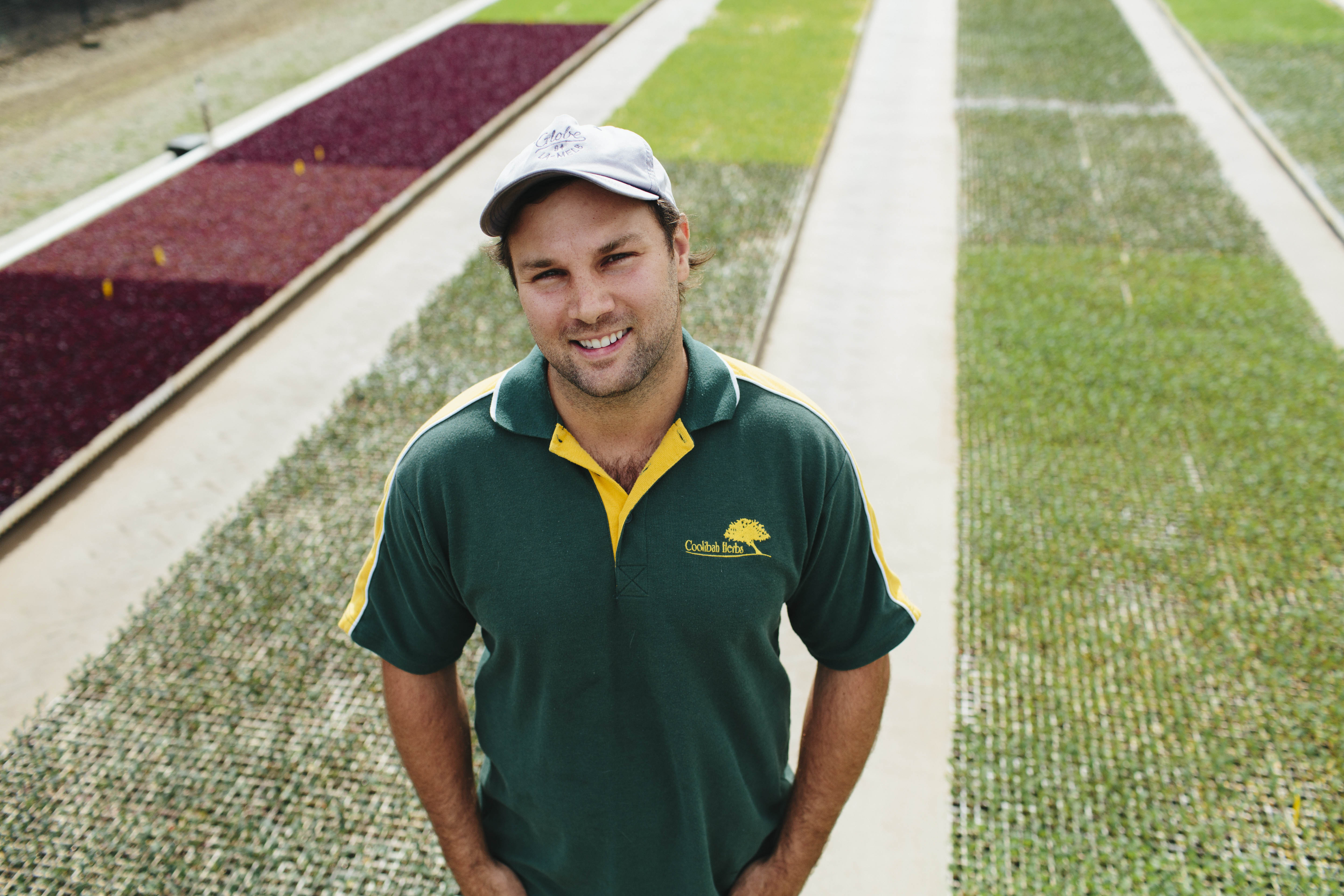Hayden Bogicevic: Bringing global experience back home
Hayden Bogicevic is a 29-year-old grower from Coolibah Herbs in Mornington Peninsula, Victoria. We profiled him in the May/June 2019 edition of Vegetables Australia magazine.
Fast facts
Name: Hayden Bogicevic
Location: Mornington Peninsula, Victoria
Works: Coolibah Herbs
Grows: Salad, leafy greens and seasonal vegetables
How did you first become involved in the vegetable industry?
As a young kid I spent a lot of time with my father riding around on tractors and other farm machinery, so that is where I first got to see how the farm works. From a professional point of view, I worked in our nursery for a year after high school. I then moved to Queensland for about nine years, playing football and working as a landscape gardener. When I moved back to Melbourne, a role as Nursery Manager was available and I have been here for about two years now, with the intention of moving more into field production and business management.
What are your roles and responsibilities in the business?
I currently run our nursery where we produce about 250,000 organic seedlings and 600,000 conventional seedlings per week. My duties include ordering fertiliser, chemicals (mostly organic), seeds and equipment; completing our spraying and feeding programs; organising varieties and quantity of seedlings; maintaining both conventional and organic hothouses; and managing our nursery staff. I also work with our transplanting team.
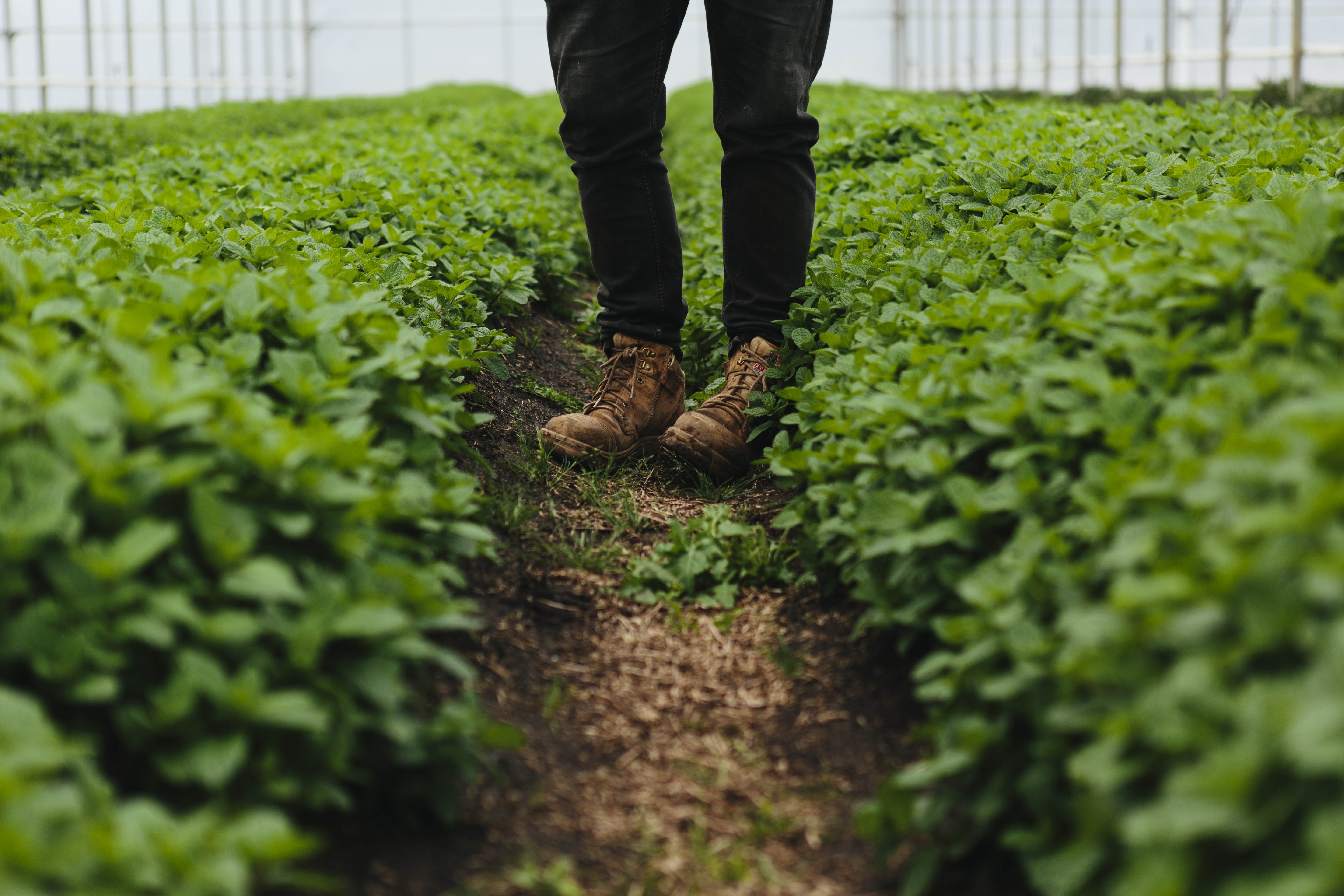
What are the biggest challenges you face working in the industry?
Winter is definitely a challenge – not just because of the lousy weather but combating pests and disease can be a real struggle, especially on the organic side of things. Apart from that, keeping and finding good staff can be hard; also dealing with the changes in-market and following market trends.
What do you enjoy most about working in the vegetable industry, and how do you maintain your enthusiasm?
I love working outdoors. I’ve had my fair share of different jobs and have always preferred being outdoors. Also looking after certain crops and being able to harvest a really healthy crop at the end of the day is very satisfying for me. My enthusiasm comes from always wanting to improve and looking at ways to be more efficient and productive. Also, I have a variety of different tasks which helps keep me motivated.
"The population is growing, and farmland is becoming scarce, so we need to find ways to improve the efficiency of our land AND the quality of our produce."
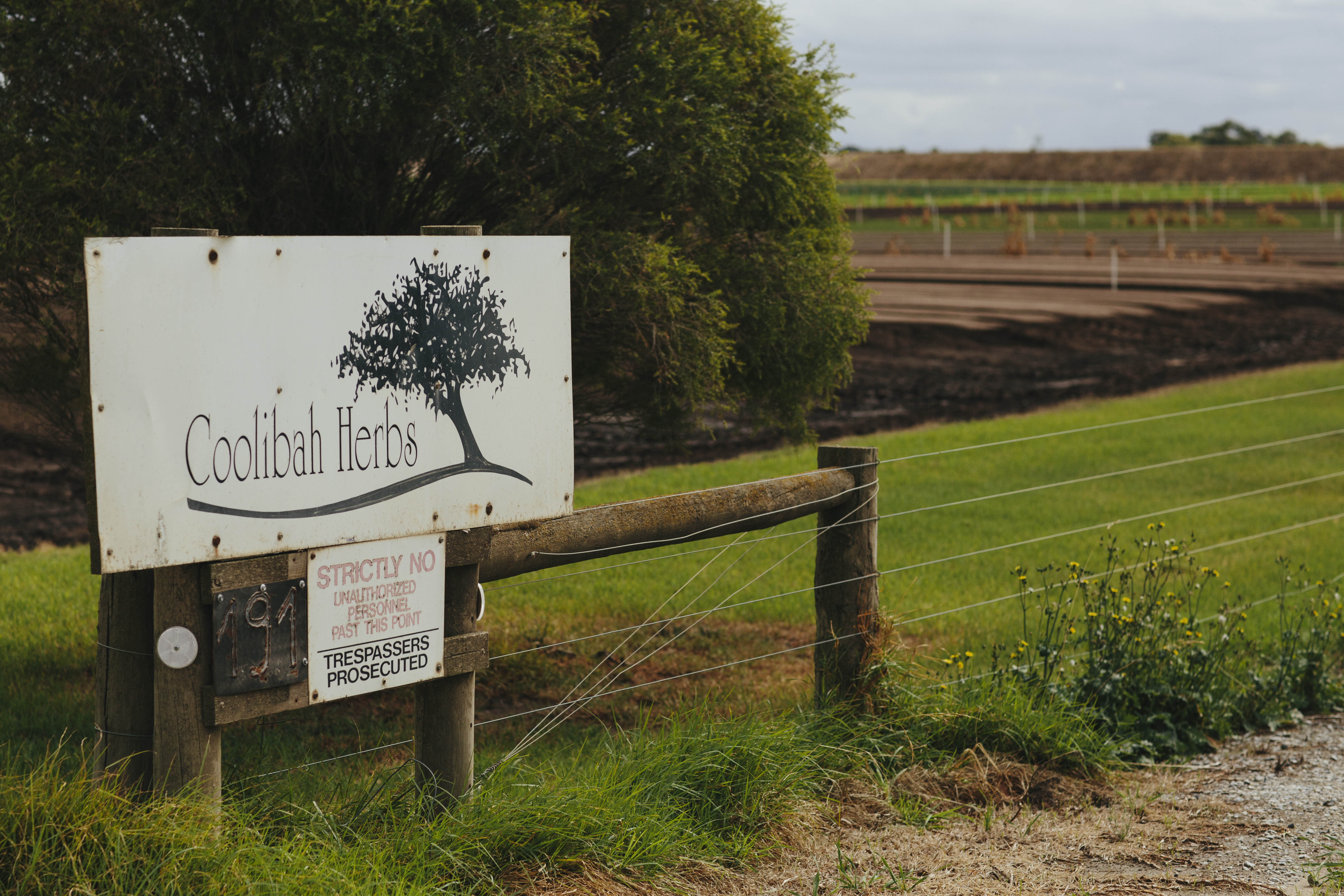
Where do you receive your on-farm practice advice and information from?
I guess you could say my father. He has been doing this now for over 40 years, so anything I need help with, I go to him. Our farm manager Satish is also always looking at training courses, constantly trying to help our staff have a greater skillset. I also meet with our agronomist Nic weekly to discuss any changes in pest and disease management, or any new ideas/strategies he may have.
What new innovations, research and/or practices has your business implemented recently? What are you doing different to other growing operations?
We have just expanded our packing shed to accommodate some of our larger customers, and in doing so we have added some new high-tech production equipment. Our workplace health and safety officer has been putting a lot of time into the logistics of the new yard, improving the flow of produce in and out of our production site. We have also brought in some new pest management systems for rodents etc. that do not use bait and are much more environmentally friendly, and our general aim is to always minimise any use of chemicals wherever we can.
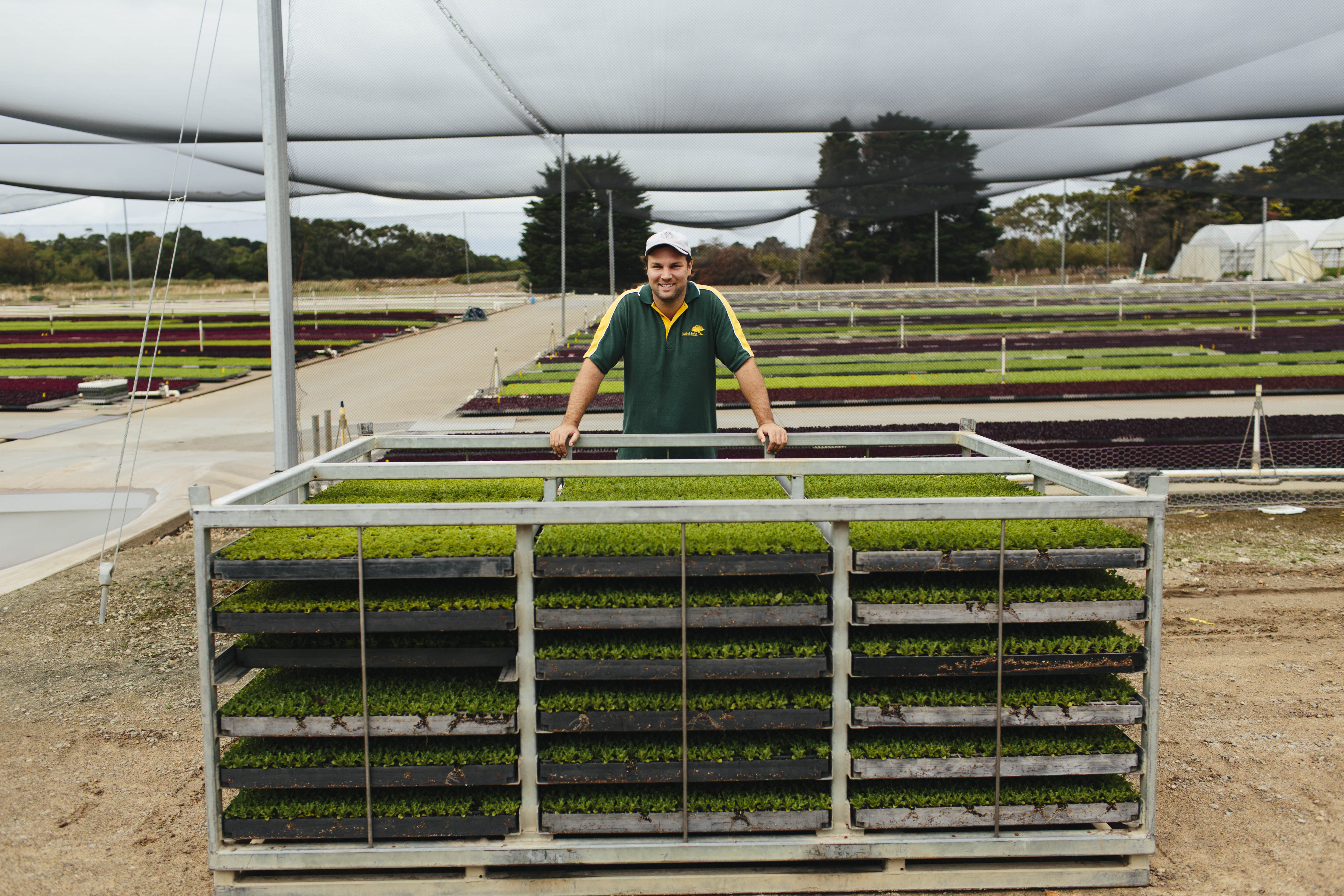
Where do you see yourself in five years?
I will still be working for Coolibah but maybe have moved more into the business side of things. Hopefully our organic production will be overtaking the conventional which is a long-term aim for our company.
How do you think more young people could be encouraged to study and take up jobs in the vegetable industry?
I think they just need to be educated more on the importance of the industry. The population is growing, and farmland is becoming scarce, so we need to find ways to improve the efficiency of our land AND the quality of our produce. I also think younger people are starting to care more about the environment so I hope this may be an area more people will be interested in. Working outside should appeal to people who want to get out of the office/ classroom and get their hands dirty!
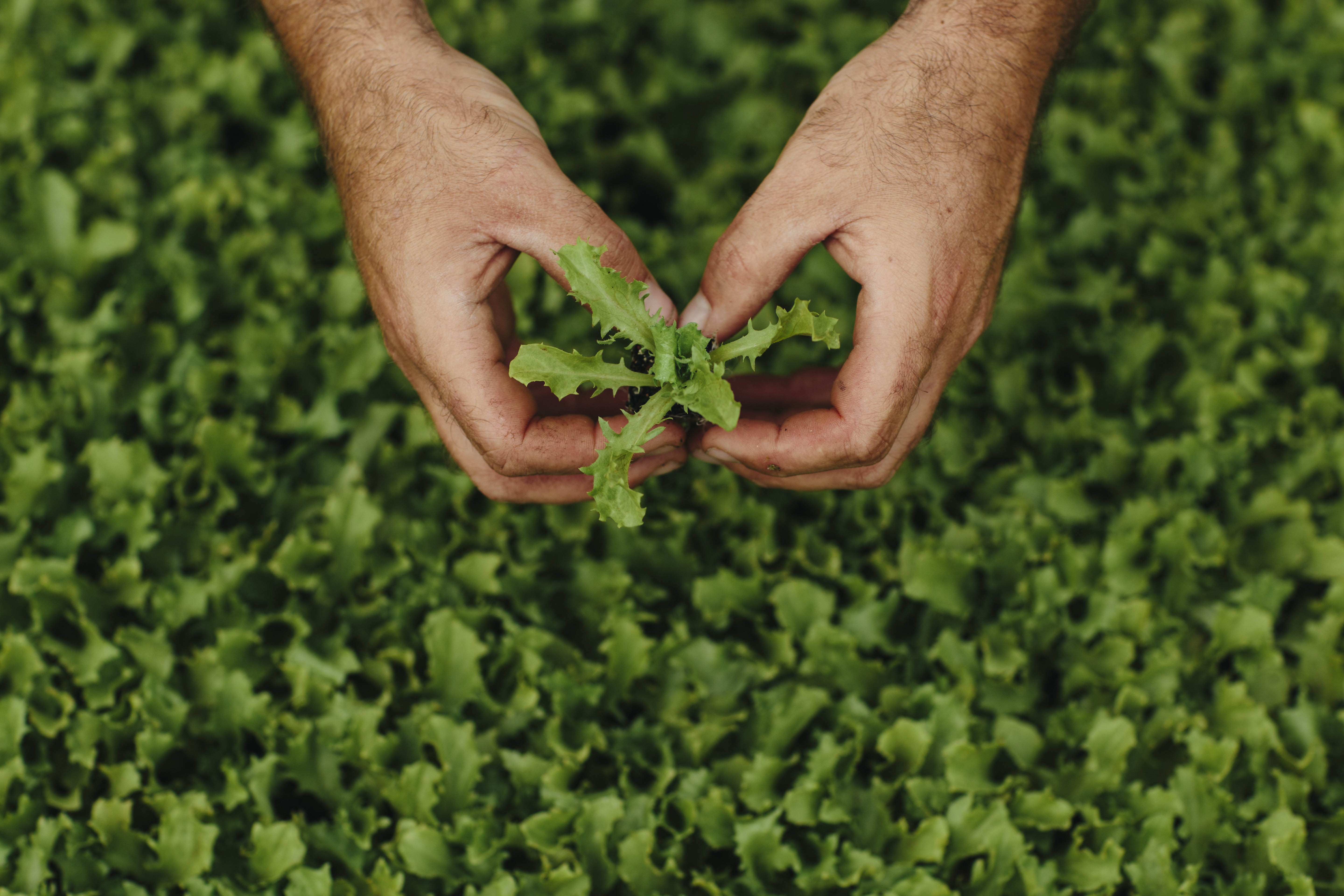
You travelled to Germany, the Netherlands and Spain as part of the 2019 European Industry Leadership and Development Mission in February. What did you learn from this experience?
I didn’t really have a great understanding of how big our fruit and vegetable industry is, and to go to Europe and see the research into technology and how they read the market was really amazing. I really picked up a sense that, in general, there was a big emphasis on quality over quantity and the research they put into renewable energy and eco-friendly farming practices was really pleasing to see.
Did you see any ideas or practices during the mission that you could try to implement in your business in the future?
The main focus of the tour was on protected cropping, which we do very little of, but I am currently in the process of improving our hothouse with some new rolling doors, ventilation and looking into some kind of heating for summer. And introducing biological pest control.
Would you recommend a mission to other growers and if so, why?
Of course. The technology and research that growers invest in overseas is far more advanced than it is in Australia, in my opinion, so it is a great chance to see any new innovations/crops/machinery that our industry has only just started looking at. And it’s always refreshing to see how the same industry can be so different in other countries. Also, it’s a great chance to see another part of the world. For those who haven’t been overseas, it is a must!
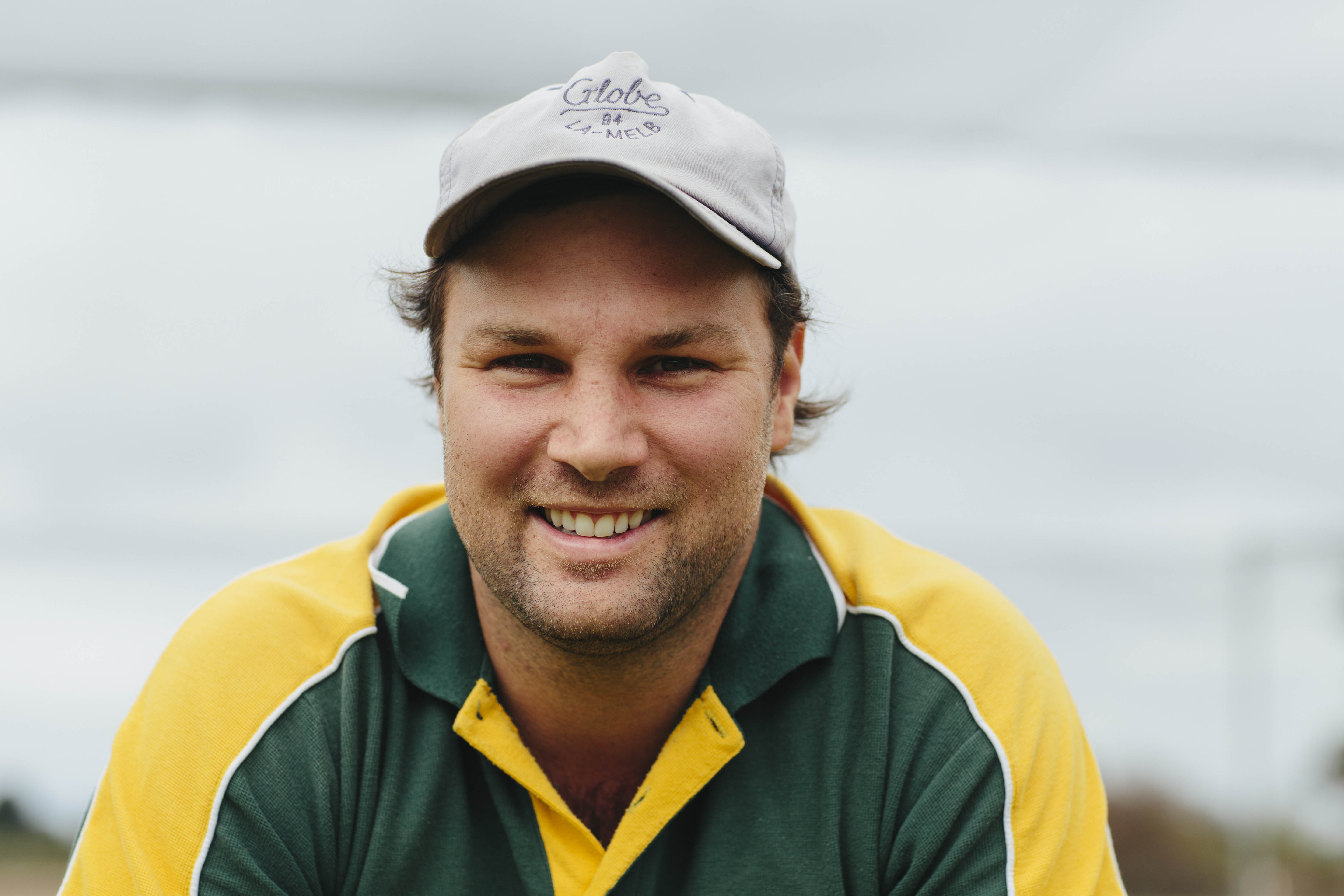
This grower profile first appeared in the leading magazine for the Australian vegetable industry, Vegetables Australia, and was featured in the AUSVEG Weekly Update published 5 February 2019. If you’d like to subscribe to receive a new edition of Vegetables Australia in your mailbox every two months, use our online subscription form!
Photography credit: LJM Photography

